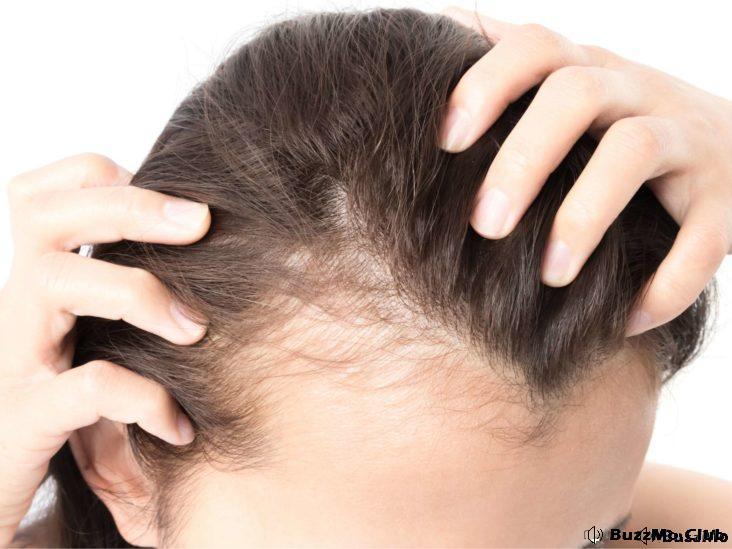Hair loss, also known as alopecia, can be a distressing and challenging experience for women. It can affect self-esteem, confidence, and social interactions. Thankfully, there are many effective strategies for preventing hair loss and promoting regrowth.
Consequently, This article will guide you through the various aspects of hair loss in women, covering prevention, treatment, coping mechanisms, and valuable resources.
Firstly: Understanding Hair Loss in Women
Several types of Alopecia can affect women, each with its unique characteristics and causes:
-
- Female Pattern Hair Loss (FPHL): The most common type, characterized by thinning hair on the crown and scalp. It’s linked to genetics and hormonal changes.
- Alopecia Areata: An autoimmune disorder where the immune system attacks hair follicles, causing patchy hair loss.
- Telogen Effluvium: Temporary hair loss triggered by stress, illness, or certain medications.
- Anagen Effluvium: Rapid hair loss caused by chemotherapy or radiation therapy.
- Cicatricial Alopecia: Scarring hair loss resulting from injuries, burns, or infection.
Therefore, Understanding the cause of your hair loss is crucial for determining the most effective treatment approach. If you experience hair loss, consult a dermatologist or trichologist for diagnosis and personalized advice.
Prevention Starts Here: Strategies to Maintain Healthy Hair
Maintaining healthy hair habits can significantly reduce the risk of hair loss and promote optimal hair growth. Here are some key strategies:
Diet and Nutrition:
- Eat a balanced diet rich in fruits, vegetables, and whole grains. These provide essential nutrients like biotin, iron, vitamin D, and zinc, which are crucial for hair health.
- Additionally, Consider taking hair growth supplements. Look for supplements containing vitamins A, C, E, biotin, iron, and zinc.
- Stay hydrated. Drinking plenty of water helps keep hair hydrated and healthy.
Hair Care Tips:
- Avoid harsh chemicals and hairstyles that pull on hair. This includes tight braids, ponytails, and cornrows.
- Use gentle hair products and avoid excessive heat styling.
- Get regular trims to split ends.
- Scalp massage can improve blood circulation and promote hair growth.
- Manage stress. Stress can contribute to hair loss. Also, Practice relaxation techniques like yoga or meditation.
Treatment Options for Hair Regrowth and Management
Therefore, Several treatment options are available for different types of hair loss in women. These include:
Minoxidil (Rogaine): This over-the-counter medication is applied to the scalp and stimulates hair growth. It’s effective for FPHL and some other types of alopecia.
Prescription medications: Medications like spironolactone and finasteride can be prescribed for FPHL to regulate hormonal imbalances.
Steroid injections: Corticosteroid injections can be used to treat patchy hair loss caused by alopecia areata.
Low-Level Laser Therapy (LLLT): This therapy uses lasers to stimulate hair follicles and promote hair growth.
Surgical Hair Transplantation: This procedure involves transplanting hair follicles from other areas of the scalp to bald areas.
Scalp micropigmentation: This cosmetic procedure creates the appearance of thicker hair by depositing pigment into the scalp.
The effectiveness of each treatment varies depending on the individual and the type of hair loss. Consulting a dermatologist or trichologist can help determine the best treatment plan for your specific needs.
Supporting Your Journey: Finding Coping Mechanisms and Resources
Hair loss can be an emotionally challenging experience. Here are some tips for coping and finding support:
- Connect with support groups or online communities. Sharing your experiences with others who understand can be helpful.
- Seek professional help. A therapist can provide valuable support and guidance for managing emotions related to hair loss.
- Focus on self-care. Practice activities you enjoy, such as exercise, spending time with loved ones, and pursuing hobbies.
- Experiment with hair accessories and wigs. These can help boost your confidence while managing hair loss.
Resources:
- American Academy of Dermatology: https://www.aad.org/
- National Alopecia Areata Foundation: https://www.naaf.org/about/
- The Hair Society: https://hairrsociety.com/pages/contact
Remember, you’re not alone in this journey. There are many resources and support systems available to help you cope with hair loss and regain your confidence.
Addressing Specific Concerns
Hair loss can be triggered by various factors specific to women’s health. Here’s how to address some common concerns:
Hair Loss During Pregnancy and Menopause: Hormonal changes during these life stages can contribute to hair loss. Consult your doctor to rule out any underlying health conditions

